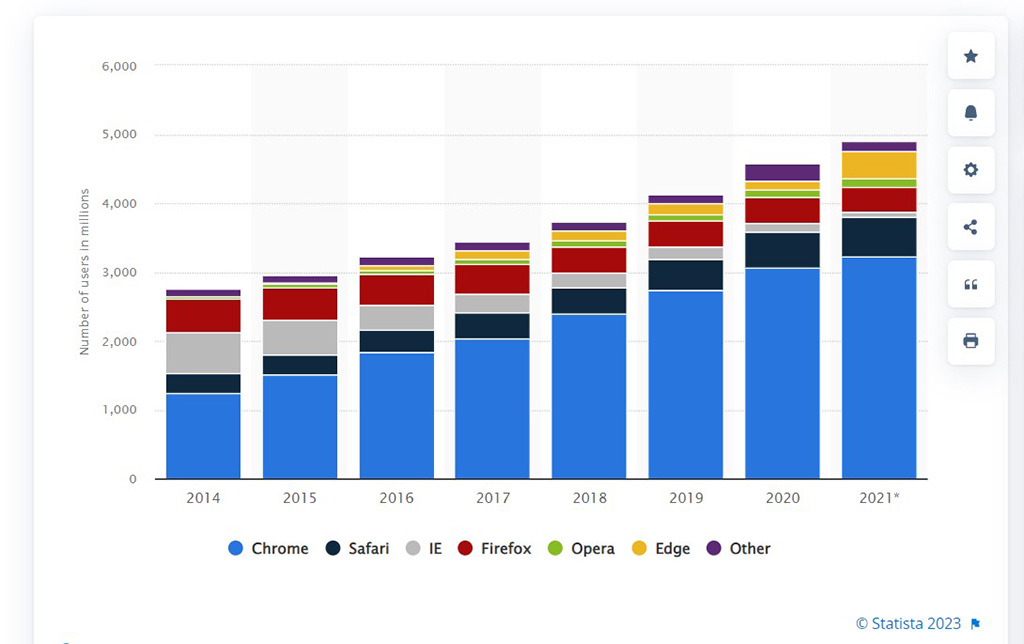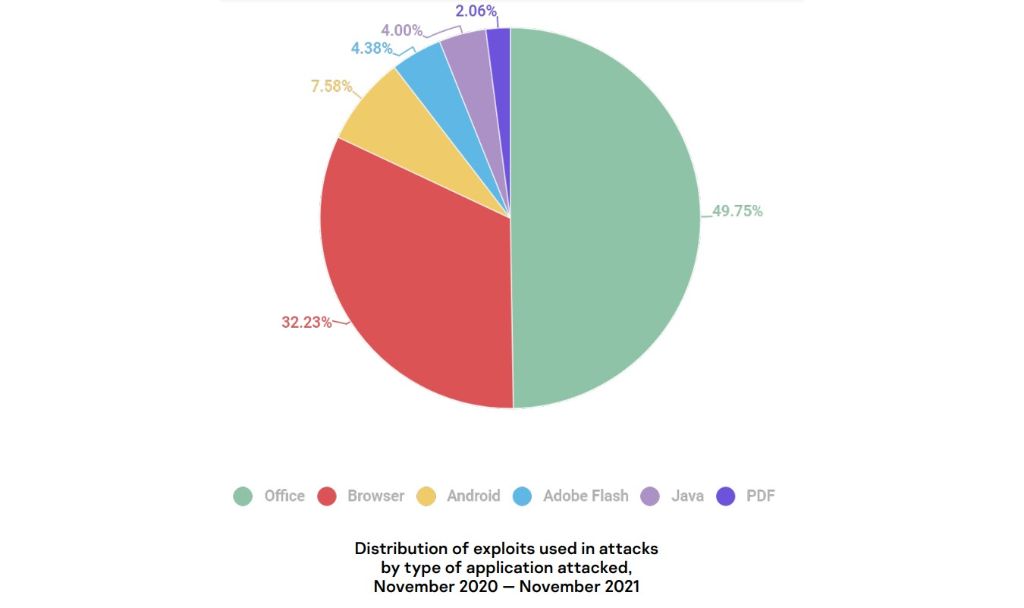Google Chrome holds a massive market share among web browsers, but Microsoft Edge is the default on Windows devices. Because of this, many users face an interesting choice between Microsoft Edge vs Google Chrome early on.
The sheep mentality often leads many toward Google Chrome. That said, I also don’t find it surprising that most prefer Chrome, given the poor reputation Microsoft built with Edge’s precursor, Internet Explorer.
Improve Your Privacy with a VPN
Surfshark improved your digital security and privacy.
Sign up today for an 81% discount on their two-year plan.
If you're an avid internet user like I am, your browser choice is essential since it's a frequently-used tool. As such, let us look into a detailed comparison of Microsoft Edge vs Google Chrome for a better understanding.
Quick Summary: Google Chrome vs Microsoft Edge
| Google Chrome | Microsoft Edge | |
| Released | 2008 | 2015 |
| Developed by | Microsoft | |
| License | Proprietary, but based on open-source Chromium | Proprietary, but based on open-source Chromium |
| Platforms | Windows, macOS, Linux, Android, iOS, Chrome OS | Windows, macOS, Linux, Android, iOS, including Xbox One and Series X/S |
| Engines | Blink (WebKit on iOS), V8 JavaScript engine | Blink (WebKit on iOS), V8 JavaScript engine |
| Default search | Bing | |
| Private browsing | Incognito Mode | InPrivate |
| Password manager | Yes | Yes |
| Extensions | Almost 200,000 extensions are available on the Chrome Web Store | In addition to Google Chrome extensions, add-ons are available on the Edge Add-on store |
| Key Features | Synchronization Horizontal tabs Tab groups Bookmarks Reading list Browser history Themes Task manager | Synchronization Horizontal and vertical tabs Favorites Collections Browser history Multiple privacy levels Immersive reader |
Google Chrome in a Nutshell

Dominating the browser share of the number of users since 2014, Google Chrome reigned supreme. Launched in 2008, Chrome is on the open-source Chromium project, a web browser project mainly developed and maintained by Google. Since it is open-source, Chromium dorms the basis for many web browsers. That brand diversity leads to each Cromium-based browser being somewhat different.
Chrome is a proprietary web browser by Google with many notable features, including its support for extensions. It is part of Google services; this is perhaps why most prefer Chrome due to the many Google apps. Chrome supports Windows, macOS, Chrome OS, and Linux desktop operating systems (OSes), Android, and iOS.
Microsoft Edge in a Nutshell
In 2015, Microsoft released Edge (part of Windows 10 and Xbox One) to improve the browsing experience. Initially built on Microsoft's proprietary browser engine, EdgeHTML, and their Chakra JavaScript engine, Edge was later rebuilt on Chromium and released in 2020.
Edge being Chromium-based is a big deal as it can support the many extensions meant for Google Chrome users in addition to the existing extensions in the Microsoft Store. Edge is the default web browser for Windows 11 and is supported by the Microsoft ecosystem.
Edge is available for Windows, macOS, iOS, Android, and Linux. Switching to Chromium was a brilliant stroke by Microsoft to fuel the competition with Chrome and others.
Chrome vs Edge Feature Comparison
User Interface
Perhaps one of the most crucial aspects is the aesthetics of the browser. After all, the user interface is what you see first when you launch a browser. At first glance, both browsers sport a similar interface with horizontal tabs at the top. However, Microsoft Edge allows the option for vertically managing tabs.
Both afford a means to group multiple tabs into groups; Microsoft Edge offers ‘Collections’. You keep track of your ideas on the web in groups which makes for better planning and organization. ‘Collections’ also syncs across your signed-in devices. Google also has something similar, also called Collections. However, Google Collections isn’t specific to Chrome.
Both browsers allow theme adjustments. Hence, you can change and customize your browsers' looks. Edge offers an Immersive reader feature that is specific to it alone; it converts the page layout into a more readable format which is highly beneficial to readers with dyslexia and dysgraphia.
When it comes to the user interface, the differences between both are overall minor. Hence, it all comes down to your personal preference.
Browser Extensions
A browser with good extension support excels because the extensions expand the browser’s functions and capabilities. Google Chrome’s advantage has always been its vast number of extensions available on the Chrome Web Store (also compatible with other Chromium-based browsers).
Microsoft Edge’s add-ons from Microsoft Store pale in comparison. Hence, Microsoft Edge never could top this until it was revamped to be on Chromium. As such, Microsoft Edge can now use Google Chrome extensions in addition to its add-ons from Microsoft Store.
While you can install Chrome extensions on Microsoft Edge now, the reverse isn't possible. This one-way compatibility gives Microsoft Edge an extra X-factor.
Backup and Synchronization
Both browsers offer good backup and synchronization. In the past, Microsoft Edge was limited in this area, but they have improved significantly, and now it can do almost the same as Chrome does.
Chrome syncs your bookmarks, history and open tabs, passwords, payment info, addresses, phone numbers, settings and preferences, and more. Microsoft Edge syncs your favorites, passwords, addresses, and more (form-fill), collections, settings, extensions, open tabs, and history.
Also, Chrome generally handles syncing flawlessly across all devices by default. However, Microsoft Edge requires cross-device syncing to be enabled manually. Although both do a decently good job, Microsoft Edge has a little way to catch up to Chrome.
Performance Comparison
Loading time and response time are two crucial factors for a browser. They must be speedy to satisfy users. Hence, developers work hard in the browser's resource management to increase performance levels.
Speed
Historically, Chrome users tend to claim the browser is faster than Edge. The reality is that Microsoft's swap to the Chromium Engine has even the field. However, many factors come into play with speed. The close comparison leads to varying user experiences, with users on both sides claiming speed advantages.
Resource and RAM usage
It’s no secret that Google Chrome is resource heavy. Using Chrome can sometimes load the resources to the extent it crashes, which does not give a good user experience. Many feel this is due to users weighing the browser down with too many third-party extensions.
With Edge, Microsoft managed to improve memory usage making the resource consumption for Chrome to be higher than Edge. Hence, Microsoft Edge does have that extra edge in this area.
Privacy and Security Comparison

Studies show that browsers are one of the most common targets of attacks. After all, you use the browser often. It is not surprising that the browser is the favorite target of hackers. As such, use a browser with the necessary security features.
Security in Microsoft Edge
Microsoft has spared no effort when building Edge’s security features. The robust built-in defenses against phishing and malware impress. Microsoft claims that Microsoft Defender SmartScreen blocks more phishing and malware than Google Chrome's Safe Browsing.
Also, it natively supports hardware isolation through Microsoft Defender Application Guard (Application Guard), part of Windows Pro or Enterprise. Untrusted sites are in a kernel isolated from the device and internal networks. Hence, in the case of an attack, everything is sandboxed from the rest.
When paired with native support for Microsoft 365 security and compliance services, Microsoft Edge certainly does not disappoint.
Security in Google Chrome
The Enhanced Safe Browsing protection for Chrome is valuable, especially when browsing suspicious websites. Google claims that Enhanced Safe Browsing reduces phishing attempts by 20-35%.
If you’re signed in, this feature extends to other Google apps you use. Also, a ‘Safety check' improves your overall security by flagging any compromised passwords, dangerous extensions, and more.
Both web browsers make managing passwords easy and convenient with built-in management features. However, there is a slight difference in browser updates. Microsoft Edge automatically updates when you restart your browser, while Chrome typically updates every six weeks.
Also, both Edge and Chrome aren't considered good private browsers. That said, Edge comes off as the better option since Google is widely known for tracking and creating profiles of its users.
Customization and Integration Comparison

Microsoft Edge has integrations with the Microsoft suite of products. You can easily access the Microsoft 365 products suite and Outlook directly on the right side of Microsoft Edge (circled in blue in the image above). Hence, if you heavily use Microsoft products, it makes sense to opt for Edge.
Also, there’s a tab at the top directing to Google Drive. Let’s not forget that the many browser extensions that work with Chrome can now function well with Edge too.
That said, Chrome is part of the Google ecosystem, including Gmail, Google Calendar, Google Maps, Google Docs, Google Drive, and more. Since many are on board the Google ecosystem, they turn towards Chrome.
There are instances where Chrome’s integration with the Google ecosystem gives it the advantage – while Edge has its Microsoft Translator, Chrome uses Google Translate (a superior tool to Edge’s Microsoft Translator).
Final Thoughts – Will You Use Microsoft Edge or Google Chrome?
Since Microsoft Edge moved to Chromium, it is difficult to distinguish a clear winner between the two. They both do the job of a browser well for everyday use. That said, Microsoft Edge performs better in resource management, and given Google’s notorious behavior in tracking and profiling you, I would say that Edge does have an edge, albeit slightly.
That said, the decision is yours to make as which browser is better is more of a question targeting your personal preference and which one meets your primary needs.